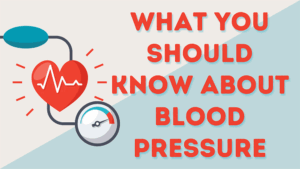5 Science-Backed Evening Habits to radically Improve Sleep and Health

It’s 11 PM. You’re exhausted. You know you should be asleep, but your mind is replaying the day’s stresses and scrolling through a endless stream of tomorrow’s worries. You finally drift off, only to wake up hours later feeling like you never slept at all. Sound familiar?
You’re not alone. Millions of people struggle with sleep, treating it as an optional luxury rather than a non-negotiable pillar of health. But what if the secret to great sleep isn’t about what you do when you’re in bed, but what you do hours before?
The hours between dinner and bedtime are a critical window of opportunity. This is when you can actively signal to your nervous system that it’s time to shift from “doing” to “being.” By crafting intentional evening habits, you don’t just set the stage for better sleep; you build a foundation that allows you to improve sleep and health holistically. Let’s explore five transformative rituals to reclaim your evenings and your rest.
1. Master the Light: Dim the Blues to See Red
Our bodies are governed by a master clock called the circadian rhythm, which is exquisitely sensitive to light. Bright, blue-wavelength light—emitted by phones, TVs, and laptops—tricks your brain into thinking it’s still daytime, suppressing the production of the sleep hormone melatonin.
The Habit: Starting 60-90 minutes before bed, implement a “digital sunset.”
Dim House Lights: Switch bright overhead lights to dimmable lamps, preferably with warm, amber-toned bulbs.
Enable Night Mode: Use your devices’ built-in night shift features to reduce blue light emission, but better yet…
Put Screens Away: The ideal move is to stop using phones, tablets, and TVs entirely. This isn’t just about light; it’s about stopping the cognitive stimulation of endless content.
Why It Works to Improve Sleep and Health:
Boosts Natural Melatonin: Dim light allows your pineal gland to naturally ramp up melatonin production, making you feel drowsy at the right time.
Regulates Cortisol: Reducing light exposure helps lower cortisol (the stress hormone) levels in the evening, which is essential for winding down.
Protects Long-Term Health: Chronic circadian disruption is linked to an increased risk of metabolic disorders, depression, and certain cancers. Honoring your natural rhythm is a profound act of preventative medicine.
Pro Tip: If you need light to read, use a small, warm-reading light that illuminates only the page, not your entire surroundings.
2. Embrace the Cool-Down: Lower Your Thermostat and Your Core
You might love a cozy, warm room, but your body disagrees when it’s time to sleep. A key part of the sleep initiation process is a drop in core body temperature. This temperature dip signals to your brain that it’s time for rest.
The Habit: Actively cool down your body and your bedroom in the evening.
Set the Thermostat: The ideal temperature for sleep is surprisingly cool, around 65°F (18.3°C).
Take a Warm Bath/Shower: This might seem counterintuitive, but a warm bath 1-2 hours before bed is a powerful tactic. As you step out, your body rapidly radiates heat, causing a significant drop in core temperature that mimics the natural sleep signal.
Choose Breathable Pajamas and Bedding: Opt for natural fibers like cotton or bamboo that allow heat to escape rather than trapping it.
Why It Works to Improve Sleep and Health:
Faster Sleep Onset: Studies have shown that a cooling body temperature helps you fall asleep significantly faster.
Deeper Sleep: This core temperature drop is associated with increased time spent in deep, slow-wave sleep and REM sleep—the most restorative stages of the sleep cycle.
Metabolic Benefits: Sleeping in a cooler environment may also help activate beneficial brown fat, which burns calories to generate heat and can improve metabolic health.
3. Tame the Monkey Mind: From Mental Chaos to Calm
You can’t expect a mind that’s been racing all day to suddenly shut off the moment your head hits the pillow. Stress and anxiety are among the top culprits of insomnia. Your evening routine needs a dedicated practice to download the day’s worries.
The Habit: Dedicate 15-20 minutes to a “brain dump” and relaxation practice.
Journaling: Write down everything on your mind. This isn’t a diary; it’s a transfer of information from your brain to paper. Try these two powerful prompts:
- What went well today? (Practicing gratitude has been shown to improve sleep quality).
- What’s on my mind for tomorrow? (Making a simple list for the next day can quiet anticipatory anxiety).
Gentle Evening Meditation or Breathing: You don’t need to sit cross-legged for an hour. Try a simple 5-10 minute guided meditation or a breathing exercise like the 4-7-8 technique (inhale for 4, hold for 7, exhale for 8), which acts as a natural tranquilizer for the nervous system.
Why It Works to Improve Sleep and Health:
Reduces Nighttime Cortisol: These practices actively lower stress hormones, switching your nervous system from “fight-or-flight” (sympathetic) to “rest-and-digest” (parasympathetic) mode.
Improves Sleep Quality: By processing the day’s events, you prevent your subconscious from doing it while you’re trying to sleep, leading to fewer nighttime awakenings and a more peaceful mind.
Enhances Emotional Resilience: A consistent gratitude practice literally rewires your brain to focus on the positive, reducing overall anxiety and improving mental health over time.
4. Craft a Consistent Schedule: Be Boring to Sleep Brilliantly
Your circadian rhythm thrives on consistency. Going to bed and waking up at wildly different times each day is like giving your body jet lag without ever leaving your home. This confuses your internal clock and disrupts the precise hormonal cascade needed for quality sleep.
The Habit: Choose a realistic bedtime and wake-up time—and stick to them as closely as possible, even on weekends. A consistent wake-up time is actually the most powerful anchor for your rhythm.
Why It Works to Improve Sleep and Health:
Optimizes Hormone Release: A predictable schedule allows your body to perfectly time the release of melatonin in the evening and cortisol in the morning, making you feel sleepy and alert at the right times.
Improves Sleep Efficiency: You will likely find yourself falling asleep faster and waking up more naturally, without that groggy feeling (known as sleep inertia).
Long-Term Health Foundation: Major studies have linked irregular sleep patterns to an increased risk of heart disease, diabetes, and obesity, independent of sleep duration. Consistency is that important.
5. Mind Your Evening Fuel: Ditch the Nightcap and Heavy Meals
What you consume in the evening has a direct impact on your sleep architecture. While a heavy meal or a glass of wine might make you feel drowsy initially, they sabotage your sleep quality later in the night.
The Habit: Be strategic about your evening intake.
Avoid Large, Spicy, or Fatty Meals 3 Hours Before Bed: Digestion raises your core body temperature and can cause discomfort or acid reflux, disrupting sleep.
Limit Alcohol: Alcohol is a sedative, not a sleep aid. It fractures sleep, suppressing crucial REM sleep and often causing you to wake up after it metabolizes.
Limit Caffeine After 2 PM: Caffeine has a half-life of 5-6 hours. That 4 PM coffee means half of it is still in your system at 10 PM.
Opt for Sleep-Supportive Snacks: If you need a snack, choose one that contains tryptophan (a precursor to melatonin) or complex carbs, like a small bowl of oatmeal, a banana, or a handful of nuts.
Why It Works to Improve Sleep and Health:
Protects Sleep Architecture: You’ll spend more time in deep, restorative sleep stages instead of having your body busy digesting a large meal or processing alcohol.
Reduces Nighttime Wake-ups: You’ll be less likely to wake up due to heartburn, thirst from alcohol, or a need to use the bathroom.
Supports Metabolic Health: Giving your digestive system a longer overnight break can improve insulin sensitivity and support a healthy metabolism.
The Compound Effect of a Peaceful Evening
Implementing just one or two of these habits can make a noticeable difference. But the real magic happens when they work together in a consistent routine. The gentle dimming of lights, the cooling temperature, the quieting of the mind—they all send a unified, powerful signal to your biology: it is time to rest, repair, and restore.
This isn’t about perfection; it’s about progression. Start with one habit that feels manageable tonight. Over time, these small, intentional actions compound into a profound ability to improve sleep and health from the inside out.
Which of these habits are you most excited to try tonight? Do you have a unique evening ritual that transformed your sleep? Share your tips and experiences in the comments below—let’s learn from each other!







